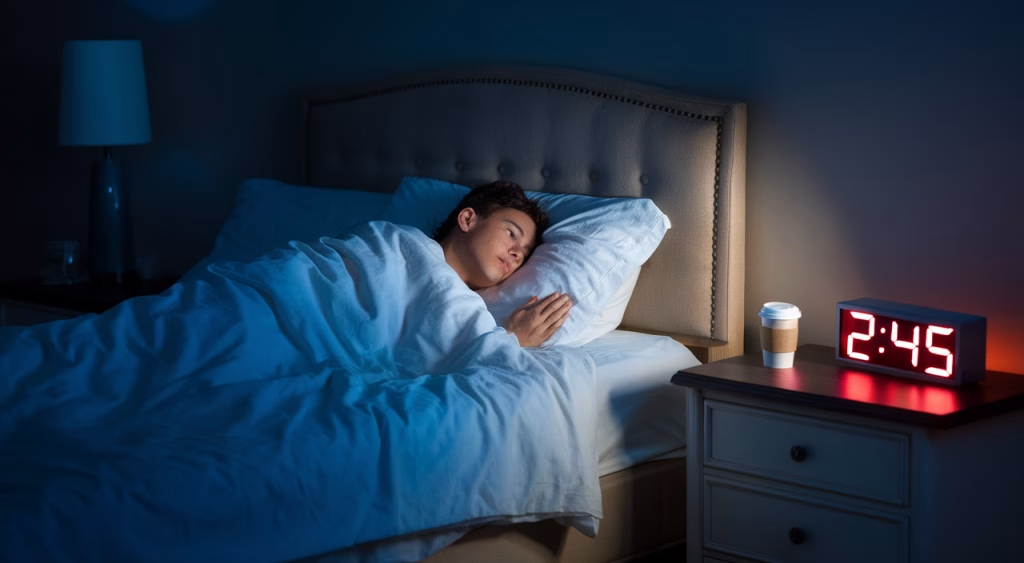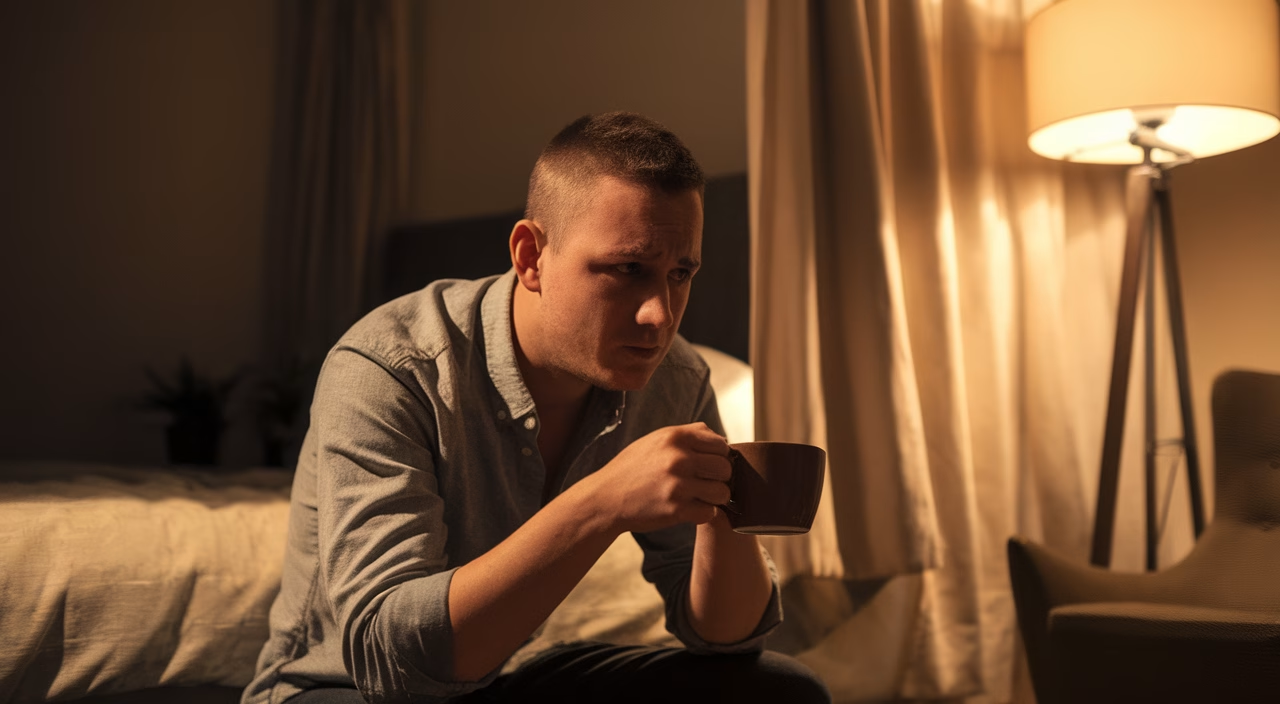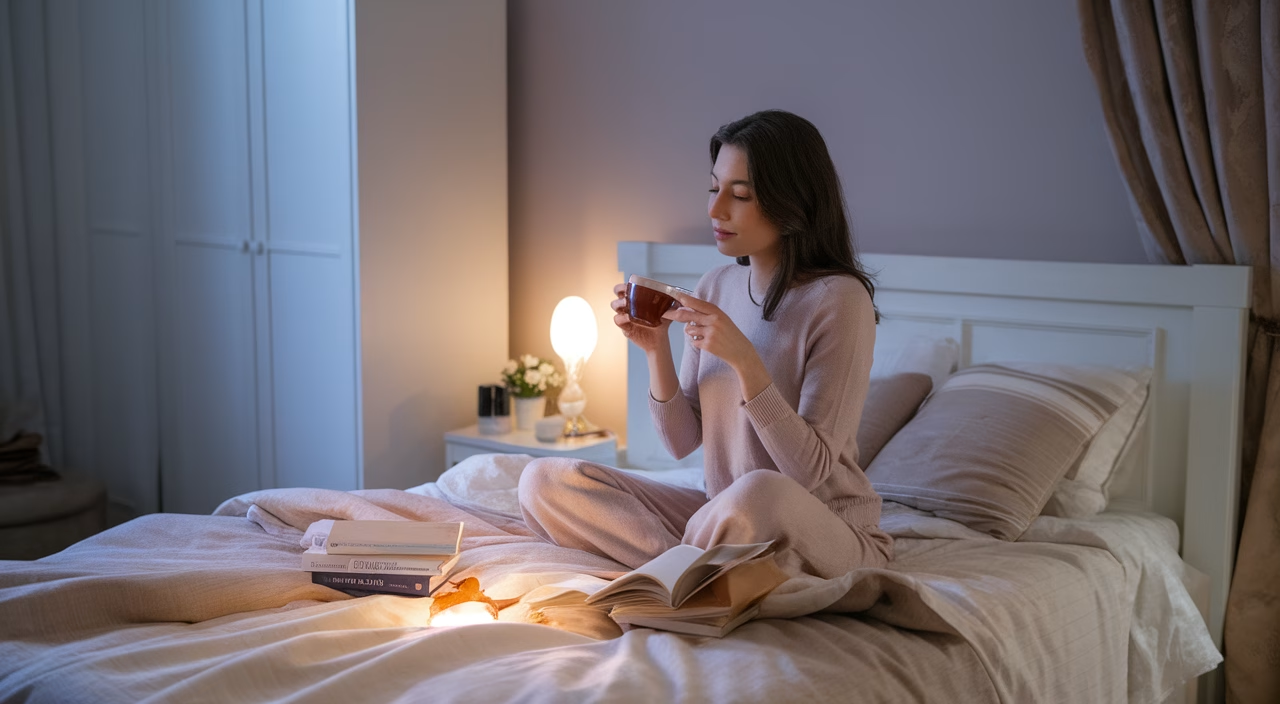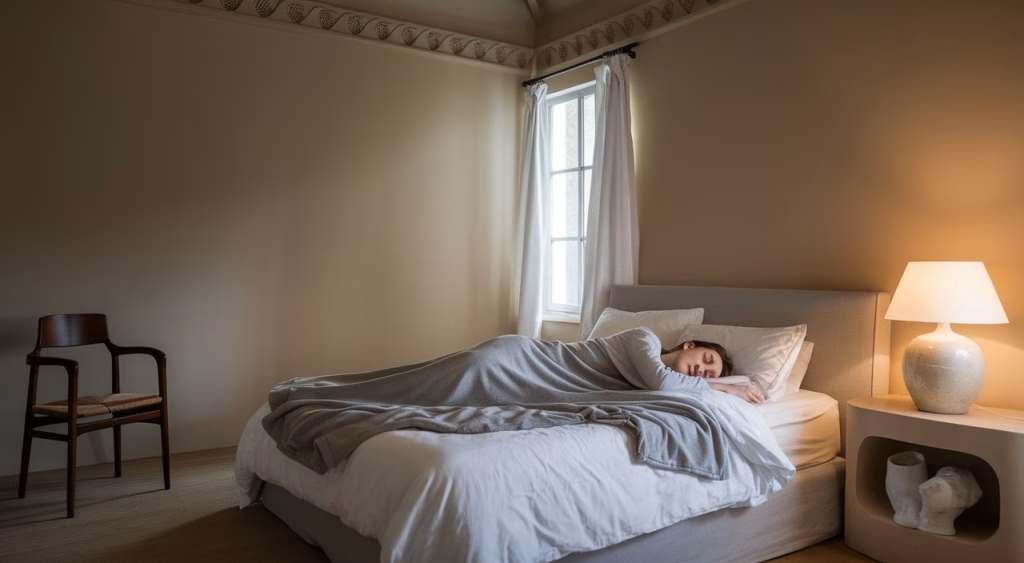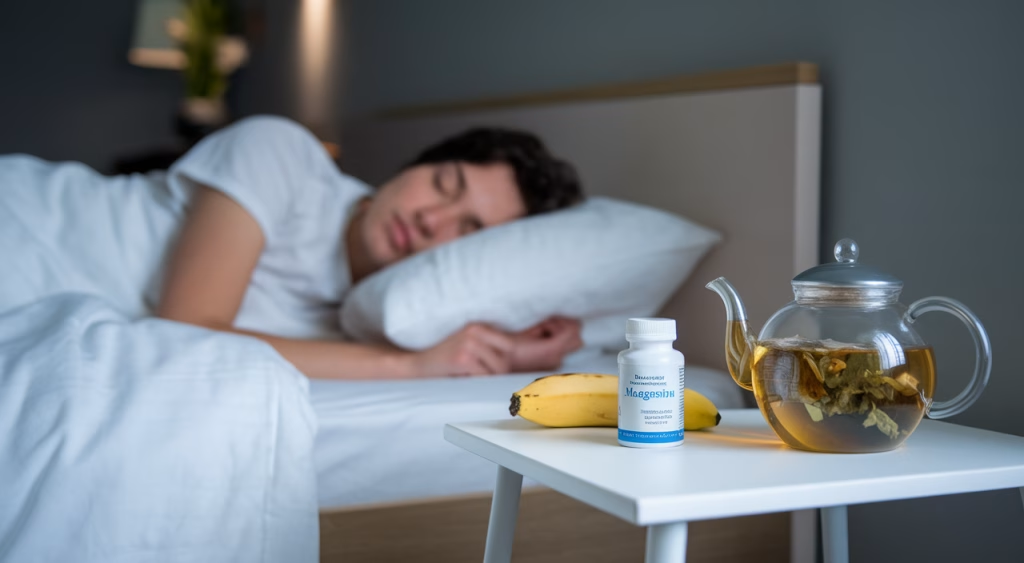Can Caffeine Make Sleep Apnea Worse?
The short answer: Yes, for many people with sleep apnea, caffeine can significantly interfere with sleep quality and amplify symptoms—especially when consumed late in the day or in large amounts. However, the relationship between caffeine and sleep apnea isn’t straightforward and depends on your caffeine sensitivity, overall health, and sleep hygiene habits.
TL;DR: Summary of Key Points
- Sleep apnea disrupts your sleep patterns, and caffeine can worsen fragmented sleep when not timed properly.
- Caffeine doesn’t directly cause sleep apnea, but it intensifies symptoms like restlessness and excessive daytime sleepiness.
- Late-day caffeine consumption prolongs sleep latency, reducing overall restfulness for sleep apnea patients.
- Limiting caffeine after 2 pm and switching to decaf after lunch can significantly improve nighttime breathing and sleep quality.
- Effective sleep apnea management involves more than managing caffeine intake—it requires creating consistent routines and making lifestyle adjustments that support quality rest.
Understanding Sleep Apnea and Its Severity
Sleep apnea is one of the most common sleep disorders affecting millions of adults worldwide. If you’ve been diagnosed with sleep apnea, you already know how disruptive this condition can be to your daily life. It causes repeated interruptions in breathing during the night, often leading to loud snoring, gasping, and persistent daytime fatigue. These breathing pauses can occur anywhere from a few times to hundreds of times per night.
There are three main types of sleep apnea: obstructive sleep apnea (OSA), central sleep apnea, and complex sleep apnea syndrome. OSA is the most prevalent form, caused by physical blockage of the airway when soft tissues in your throat collapse during sleep.
How do we measure sleep apnea severity? One key indicator is the Apnea-Hypopnea Index (AHI), which tracks the number of breathing interruptions per hour of sleep.
| Severity | AHI Score (Events/hour) |
|---|---|
| Mild | 5–14 |
| Moderate | 15–29 |
| Severe | 30 or more |
Understanding your AHI score can help guide decisions—including how lifestyle factors like caffeine consumption may be impacting your sleep apnea symptoms and overall sleep quality.
How Caffeine Affects Sleep Quality
Ever sipped a cup of coffee in the late afternoon and found yourself staring at the ceiling long past bedtime? Caffeine is a powerful central nervous system stimulant that temporarily blocks adenosine—a chemical that builds up throughout the day and makes you sleepy. While this can be helpful in the morning, it becomes problematic when consumed too late.
Here’s what typically happens: Caffeine can reduce your total sleep time, increase the time it takes to fall asleep (known as sleep latency), and decrease deep sleep stages (particularly stage 3 non-REM sleep). The half-life of caffeine is about 5–6 hours, which means that a 4 pm espresso could still be affecting your system at 10 pm or later—even if you don’t feel fully alert.
For those with caffeine sensitivity (which is common in people who are sleep deprived), even a small cup of tea or some dark chocolate late in the day can increase nighttime awakenings and promote shallow sleep.
Physiological Effects of Caffeine That Interfere With Sleep
- Delays melatonin production
- Elevates nighttime heart rate and blood pressure
- Activates stress hormones like cortisol
- Reduces restorative deep sleep phases
When you combine these effects with an existing condition like sleep apnea, your night can transform from potentially refreshing to chronically restless.
Relationship Between Caffeine and Sleep Apnea
The science isn’t fully settled on whether caffeine directly worsens the physical manifestations of sleep apnea itself, but most research and clinical experience point to a clear correlation: caffeine consumption often contributes to significantly poorer sleep quality in people already dealing with sleep-related breathing issues.
Why might this be? Chronic caffeine use may reduce your ability to detect fatigue, essentially tricking your brain into ignoring signs that it’s time to rest. Over time, you may begin relying heavily on caffeine to cope with excessive daytime sleepiness (EDS), only to discover that it’s perpetuating a vicious cycle of sleep deprivation and poor sleep hygiene.
In fact, several studies have shown that people with sleep apnea report significantly higher caffeine consumption—and sleep specialists often observe patients complaining of worsening symptoms on days when they’ve consumed multiple caffeinated beverages.
We can think of it this way: sleep apnea already severely disrupts normal sleep architecture. Caffeine, layered on top, dramatically increases the likelihood of lighter, fragmented sleep—turning an already strained recovery process into an uphill battle.
It’s also worth noting that individuals with high caffeine sensitivity or anxiety may experience worsened breathing discomfort or nighttime restlessness when stimulant effects peak at bedtime.
Managing Caffeine Intake for Better Sleep
So what’s the most effective strategy here? It’s not about giving up caffeine entirely—it’s about being strategic with your caffeine consumption. You can still enjoy your morning coffee; the key lies in timing and quantity.
Here are essential sleep apnea management tips regarding caffeine intake:
- Time your caffeine wisely: Avoid all caffeine consumption after 2 pm to protect your sleep quality.
- Limit total daily caffeine intake: Most sleep specialists recommend staying below 200–300 mg/day (about 2–3 small cups of coffee).
- Switch to decaf later in the day: Decaf coffee or herbal teas can provide an evening ritual without the stimulant effects.
- Be mindful of hidden caffeine sources: Soda, energy drinks, pre-workouts, and even some medications contain significant amounts of caffeine.
- Track your symptoms carefully: Keep a sleep journal to monitor how caffeine affects your CPAP usage, nighttime awakenings, or morning energy levels.
Many people with sleep apnea notice that reducing caffeine doesn’t just improve sleep quality—it also reduces snoring intensity, morning headache frequency, and those groggy feelings upon waking.
Tips for Improving Sleep Quality
If you’re serious about improving your sleep apnea symptoms, combining strategic caffeine management with excellent sleep hygiene is absolutely critical. Here’s where to start:
Establish Consistency
Go to bed and wake up at the same time each day—even on weekends. A consistent sleep schedule supports your internal circadian rhythm, dramatically improving overall sleep efficiency.
Create a Caffeine-Free Wind-Down Routine
Replace post-dinner coffee with calming herbal teas or warm water with lemon. Pair this with dimmed lighting and low-stimulation activities like light reading or gentle stretching.
Use Your CPAP or Sleep Device Faithfully
Your sleep apnea treatment won’t work if you don’t use it consistently. Be diligent with equipment maintenance and schedule regular check-ins with your sleep provider if your device feels uncomfortable or seems ineffective.
Maintain Optimal Airway Health
Losing excess weight, avoiding alcohol before bed, and sleeping on your side can also help reduce airway collapsibility in OSA sufferers. These steps, combined with strategic caffeine reduction, create a powerful toolkit for better sleep.
Cost Guide: Adjusting Lifestyle Habits for Sleep Apnea Relief
| Improvement Strategy | Cost Range |
|---|---|
| Switching to herbal teas / decaf drinks | $5–$30/mo |
| Caffeine tracking apps or journals | Free – $10 |
| Sleep hygiene upgrades (eye masks, white noise machines) | $15–$100+ |
| Consults with sleep specialists | $75–$300 per session (insurance may cover) |
Final Thoughts
If you’re dealing with sleep apnea and feel like your sleep isn’t as restorative as it should be, it’s time to take a closer look at your caffeine habits. While a little morning coffee might not sabotage your health, poor timing or excessive amounts could be making your sleep apnea—or at least how you feel during the day—significantly worse. The solution isn’t complicated, and it doesn’t mean you have to eliminate coffee altogether. But making intentional changes to your caffeine consumption can produce dramatic improvements.
We all deserve better sleep. With the right adjustments—starting with smart caffeine timing and proper intake management—you’ll likely notice remarkable improvements in your energy levels, mood, and nighttime comfort.
Frequently Asked Questions
- Is decaf coffee okay for sleep apnea?
Yes, decaf contains only trace amounts of caffeine and is usually safe for people with sleep apnea. - How late is too late to drink caffeine?
Ideally, avoid caffeine after 2 pm to protect your nighttime sleep quality and reduce sleep apnea symptoms. - Can caffeine withdrawal disrupt my sleep?
Short-term withdrawal may cause headaches or fatigue but usually improves sleep quality after a few days. - Does quitting caffeine help all sleep apnea symptoms?
Not all symptoms, but reducing caffeine intake may significantly reduce fatigue and improve CPAP compliance. - Is tea better than coffee for sleep apnea?
Some teas have lower caffeine content and may be a gentler alternative for managing caffeine intake. - What if I need energy in the afternoon?
Try a brief walk, a protein-rich snack, or proper hydration—these are caffeine-free ways to boost energy. - Can caffeine cause sleep apnea to develop?
There is no evidence that caffeine causes sleep apnea, but it can worsen existing symptoms.

